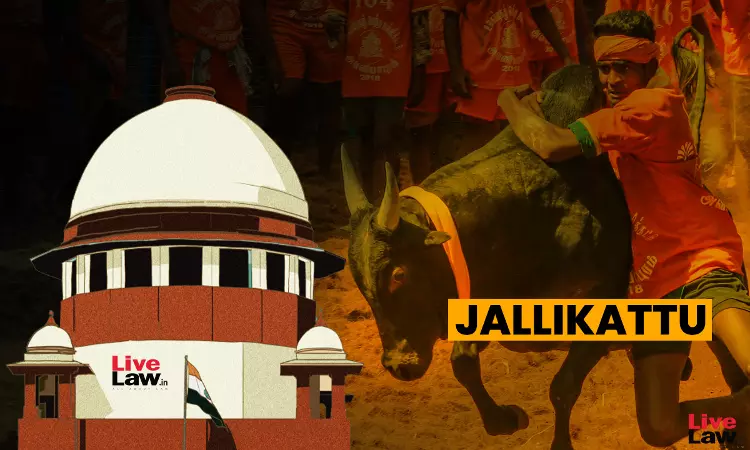Jallikattu Case: Supreme Court Constitution Bench Reserves Judgment
Anurag Tiwary
8 Dec 2022 5:44 PM IST

Next Story
8 Dec 2022 5:44 PM IST
A 5 judge Constitutional bench headed by Justice KM Joseph and comprising Justices Ajay Rastogi, Aniruddha Bose, Hrishikesh Roy and CT Ravi Kumar, today concluded hearing the batch of petitions challenging constitutionality of laws permitting Jalikattu, Kambala and bull-cart race in states like Tamil Nadu, Karnataka and Maharashtra. Senior Advocate Shyam Divan, appearing for one...
